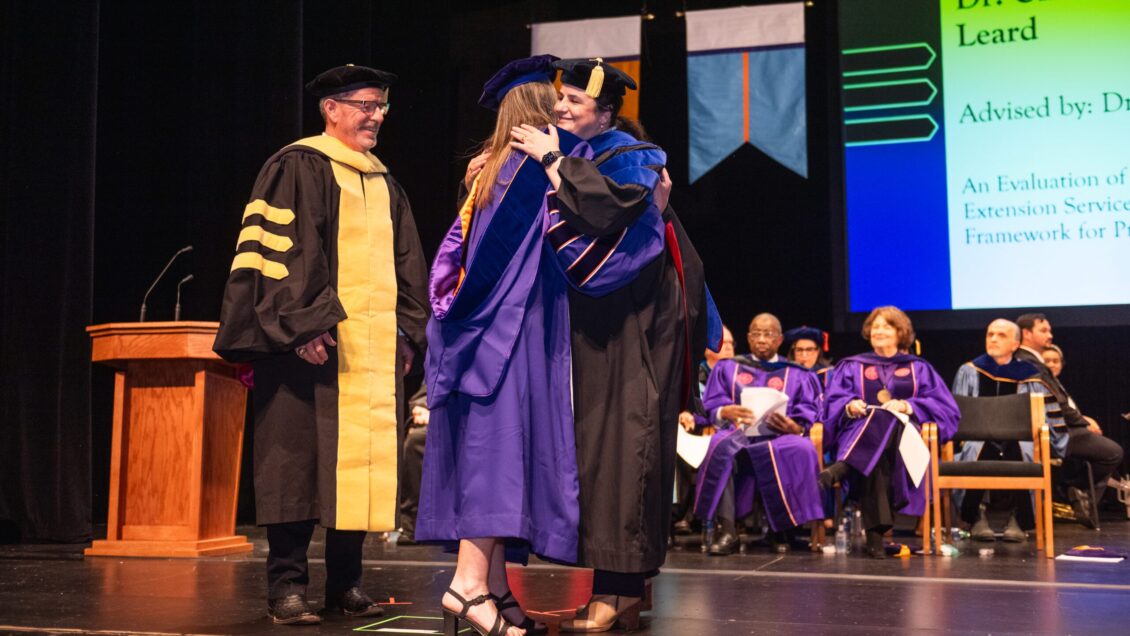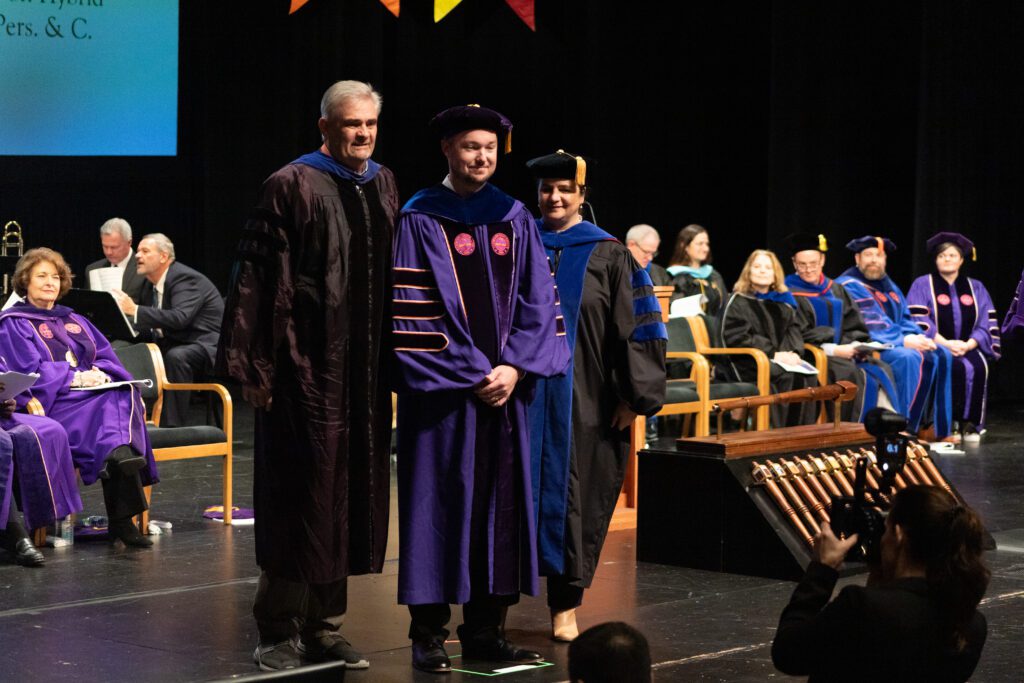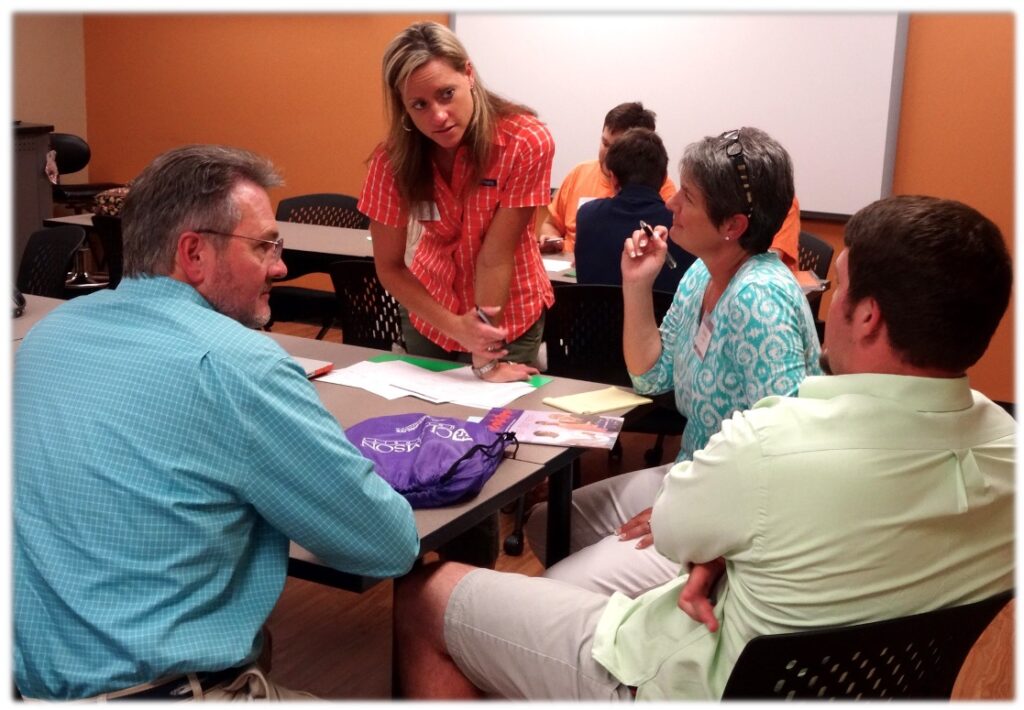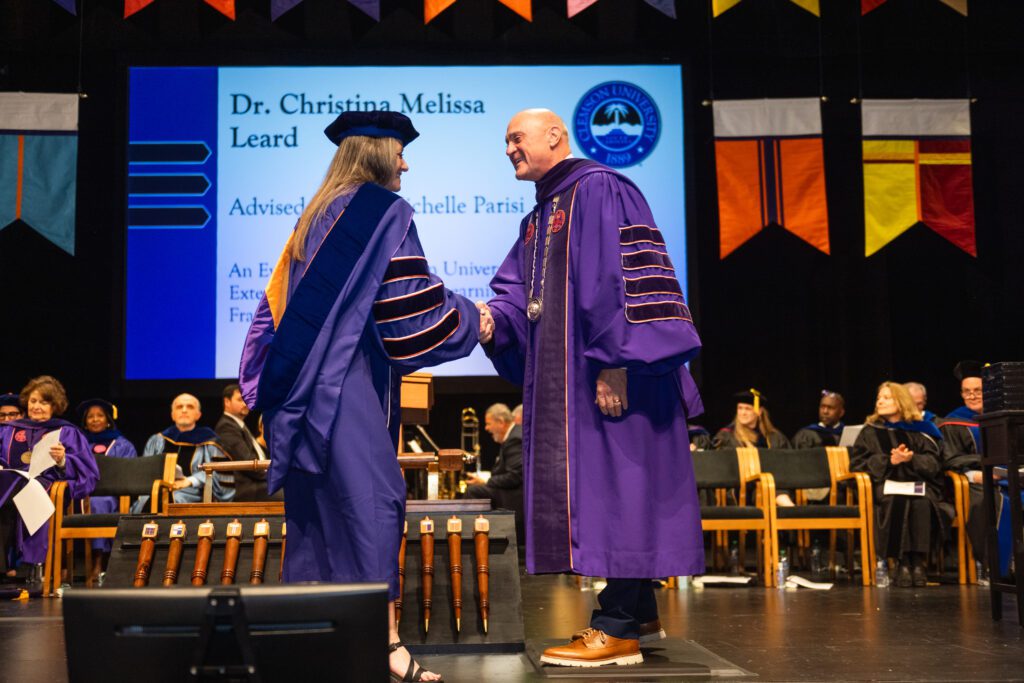
Doctoral grads say Extension work was motivation for continued education
After Wednesday’s doctoral hooding ceremony at the Brooks Center for the Performing Arts, Adam Gore and Christi Leard can officially ask their Clemson University Cooperative Extension Service colleagues to call them “Doctor.”
Not that either plan to do that.
But both Gore, a horticulture agent, and Leard, a program manager, said that the work they were already doing, not the title, motivated them throughout their Ph.D. programs.
“I’m fortunate to say I’ve been employed this entire time as an agent with Clemson Cooperative Extension,” Gore said, “and I hope to continue to do so. I’d like to continue to work heavily with turfgrass and shift the narrative and stigma that can often come with lawns and aid others in responsibly managing grass in South Carolina.”
Clemson serves as the platform for this, Gore said, because his job is to help clients — whether commercial landscapers, golf course managers, nurseries or any South Carolinian with a single plant — based on unbiased research.

And Gore said his Clemson journey was unique because his doctoral research directly benefitted and aided his ability to perform as a Clemson Extension employee.
“My research into heavy metal toxicity has forced me to have a greater understanding of soil chemistry and physics, which has directly benefitted South Carolina citizens I’ve worked with in developing fertilization, irrigation and maintenance schedules for their own purposes,” he said.
Originally from Loris, South Carolina, Gore came to Clemson as an undergraduate in 2009 because it was the only university in South Carolina that offered his desired degree: Agricultural Education.
But while he had scholarship offers elsewhere, Gore said his desire to stay in his home state to connect with its people and resources drove him to Clemson.
“My advice to someone considering a similar path is to ‘test the waters,’” he said. “Experiences teach you far more than a recruiter could. If you want to be a teacher, sit in the classroom and present a small lesson. If you want to be a turf manager, get out on the course or the field and see if it suits you. Clemson provided me with all those opportunities to help guide me in my current direction.”
One of those opportunities was the Employee Tuition Assistance Program (ETAP), which offers a 100 percent waiver for graduate and undergraduate education courses up to six credit hours per academic term to vested employees.
The Employee Tuition Assistance Program really is a great tool for employees. There are some hurdles to navigate initially … but my supervisors were accommodating, and the Human Resources department is top-notch.
CLEMSON HORTICULTURE EXTENSION AGENT ADAM GORE
Like Gore, Leard also earned bachelor’s and master’s degrees from Clemson before completing a doctorate in the University’s Department of Plant and Environmental Sciences.

While Gore came to Clemson from coastal South Carolina for his academic major and is now based out of the Sumter County Extension Office, Leard grew up going to games at Memorial Stadium and always thought she would attend the University one day, too.
But when she finished her bachelor’s degree to teach Industrial Technology, she found the job market was near the coast, while her family was still in the area.
Leard, from nearby Westminster, found an administrative assistant position in Clemson’s College of Agriculture, Forestry and Life Sciences (CAFLS), but admits she expected it to be temporary.
“I ended up absolutely loving my job and coworkers, who supported me and helped me to learn more and grow with the needs of the Agricultural Sciences department,” she said.

Leard said Clemson Extension Director Tom Dobbins pushed her to pursue a master’s and Ph.D. program in the first place due to the department’s research needs in certain areas of study.
“Clemson and my department worked with me as an employee allowing me to work and go to school a little at a time, which makes it a great place for advancement and lifelong learning,” Leard said.
And after transitioning from advising students to working with Extension as a program manager, and officially earning her doctorate, Leard said what made her Clemson journey special was the ability to work full time with students while pursuing degrees in the same college herself.
“I believe this helped me understand the students and situations they were dealing with so that I could help them better,” she said. “CAFLS is the best College with a family atmosphere where everyone cares about each other and is there to help when needed.”
Get in touch and we will connect you with the author or another expert.
Or email us at news@clemson.edu
